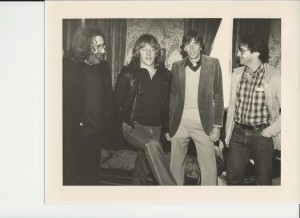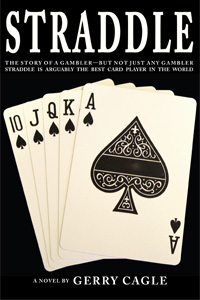9/4/1998
This past week was a good time to be poor. Rich people lost a ton of money in the stock market last week. LPMs might have lost a couple of dollars. Deejays didn’t lose a dime.
It’s almost funny that the last few Editorials I’ve written concern the stock market. Until a short time ago, those in the radio and record business didn’t pay any attention to Wall Street. Most thought the stock market was a place to look at cattle.
Unfortunately, the decline of the stock market is going to have an effect on us “little†people. We might never be on a first name basis with a stock broker, but when the river bursts through the dam, you can bet the slaves will be called out to haul sandbags.
If you’re naive enough to believe that a bleak market isn’t going to impact your life because you don’t own stocks, perhaps you would be interested in purchasing some ocean front property in Arizona I’ve been holding. Or maybe those Florida radio stations I own a piece of. (Actually, the land in Arizona might be a better deal.)
The stock market, and specifically the price of radio and record companies’ stocks, drives our destiny. When record companies were owned by individuals and radio stations by broadcast companies, the market was no more reflective of earnings than the foreign policy. All of that has changed, Virginia. You were right. There is no Santa Clause.
Record companies are now owned by public conglomerates. The worth of the company is measured by the value of the stock. When company executives are compensated with stock options, do you really believe the new superstar album is anticipated for the cutting edge music quality?
Hardly.
Company executives are bonused when the stock has reached a certain point. They’re not thrilled when the tracking graph shows a sudden dip.
What does this mean for a record company employee? Work harder, work faster. These words are music to a worker bee’s ear. A month ago, the stock market was going up and we were all heroes. Backs were getting blisters from the pats.
Thirty days later, through no fault of our own, working just as hard as before, the stock market makes a “correction†and we’re all worthless.
In a bull market, revenue drives the car. If you must spend more to make more, so be it. In “bare†times, expenses are all that matters. Record companies will be charged with cutting expenditures drastically in the fourth quarter to make the bottom line look healthier. If you’re working for a record company, expect belt tightening measures. Your T&E budget will be cut, if not suspended. Promotions will be curtailed. Fly-aways will be grounded like Northwestern.
However, the record companies will weather the storm. Record company earnings are mostly consistent and weighted fairly against the stock’s price. Radio, however, is an altogether different ballgame.
Everyone knows radio stocks are overvalued. The only reason radio stocks have risen in the past is on the assumption that another company would pay more for the group than the last one did. It doesn’t take a Harvard genies to figure that out.
There is a new equation now on the board. As the price of owning radio stations has increased, the number of potential buyers has decreased. Radio stations have been operated to generate revenue and make the stock more attractive to another buyer. One could easily believe that if a station is billing $10 million and spending $8 million, the potential buyer could cover the purchase price by keeping the billing high and cutting costs.
Unfortunately, there’s only so much that can be cut.
Competent broadcasters, in the business for the long haul, can operate radio stations profitably. But if the purchase price is ridiculously high, even the best broadcaster can’t cover the nut. When radio stations are trading at 700 times earnings, as many are, it takes an awful lot of increased billing and an equal amount of cost cutting just to break even. What radio station today isn’t running as lean as possible?
We’ve all predicted the bursting of the big bubble. We know that at some point in the future, the price for radio stations will drop drastically. In a bull market, bright colors are easily painted by the most incompetent artists. When stocks take a major dip, reality bites and those teeth are sharp.
The following example might be over simplified, but it makes the point: A radio station that cash flows $10 million is put on the market for $200 million. (That’s 20 times cash flow.) For that station to meet the interest payments (forget about increasing profits) it must increase the cash flow by 20%. That’s a lot of additional billing and major cost cutting. This is all right, as long as another buyer is will to cough up $300 million for the next purchase.
But what if there is no buyer? Is the scenario much different from the one learned by many in the market last week? When telling their broker to sell, the answer was chilling.
“To who?â€

